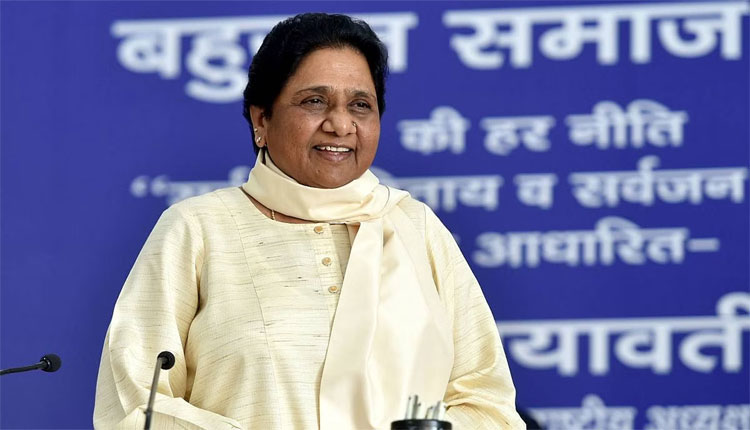Lucknow: In a decisive move that quashes recent retirement rumours, Mayawati has been re-elected as the president of the Bahujan Samaj Party (BSP). The decision was made during the party’s national executive meeting held in Lucknow, reaffirming her leadership at a crucial juncture. This marks the sixth time Mayawati has been elected to this position, putting to rest any speculation that she might step down in favour of her nephew, Akash Anand.
Akash Anand, who continues to serve as the BSP’s national coordinator, has been recognised as Mayawati’s political successor. Despite earlier decisions to avoid promoting family members within the party, three members of Mayawati’s family now occupy top positions. Akash Anand, who is also the party’s national vice president, plays a central role in the BSP’s current leadership structure.
Outside the BSP headquarters in Lucknow, posters prominently feature only three leaders: Mayawati, her brother Anand Kumar, and Anand’s son, Akash Anand. These visuals underscore the current leadership dynamics within the party. During a meeting of BSP office-bearers from across the country, Mayawati discussed strategies for upcoming elections in five states, signalling her intent to contest these elections independently.
Mayawati has also intensified her political activity following the Supreme Court’s recent decision on SC and ST reservations. She has been vocal in demanding that the NDA government introduce a bill to counter this decision in Parliament, although this has yet to materialise. In response, she called for a nationwide bandh, during which BSP workers actively protested on the streets. Through this, the BSP aims to regain its lost political ground by rallying around the reservation issue.
Two new slogans emerged during the recent BSP meeting: “In respect of the Constitution, Mayawati in the field” and “In respect of reservation, Mayawati in the field.” These slogans reflect the party’s renewed focus on uniting Dalits nationwide, particularly in advocating for a separate category within reservation quotas. Mayawati has criticised the Congress, Samajwadi Party, and BJP, holding them equally accountable for the current state of Dalit reservations.
The 30-year-old BSP is currently navigating a challenging phase. The party failed to secure a single seat in the most recent Lok Sabha elections, a significant setback considering Mayawati’s history as a four-time Chief Minister of Uttar Pradesh. The BSP now holds just one seat in the Uttar Pradesh Assembly, and its vote share plummeted to 9% in the latest Lok Sabha elections, down from 22% previously.
Mayawati’s leadership faces a myriad of challenges, particularly as her core Dalit vote bank shows signs of fragmentation, with many supporters shifting their allegiance to the NDA and the INDIA coalition. The defection of senior leaders to other parties has further weakened the BSP. One notable exception is former MP Satish Chandra Mishra, who remains loyal to Mayawati. However, the rise of Chandrasekhar, who also hails from the Jatav community, presents a growing challenge to her authority.
As Mayawati embarks on her sixth term as BSP president, her foremost challenge will be to revitalise the party and restore its influence, ensuring the BSP’s survival in an increasingly competitive political landscape.



Comments are closed.